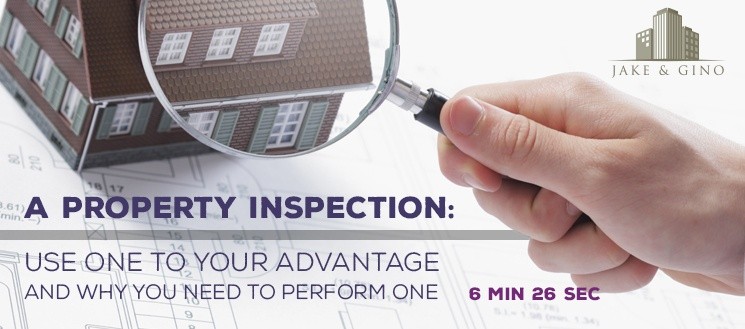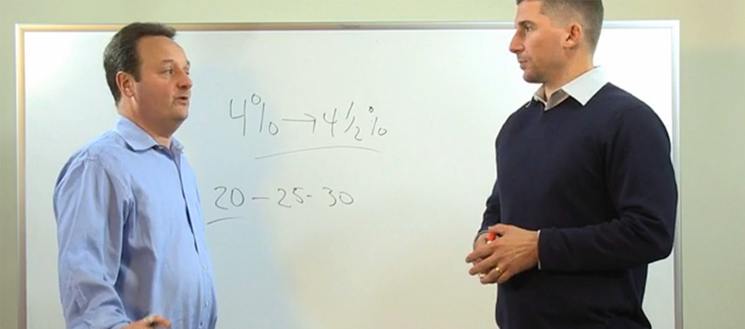
A Property Inspection: How To Use One To Your Advantage and Why You Need To Perform One
Two of the most important, yet often overlooked words in investing are “Due Diligence”. To the savvy investor, due diligence is the period of time when you begin to uncover intimate details about the investment similar to peeling the layers of an onion. The deeper you get, the more you uncover, and the more problems you may run up against. In this article, I will define due diligence, introduce our framework for due diligence, focus primarily on the physical due diligence and describe the responsibilities and duties of an excellent property inspector and how an inspection can be used to your advantage when negotiating a deal.
Due Diligence is defined in Merriam’s dictionary as research and analysis of a company or organization done in preparation for a business transaction. When I began investing in real estate, this was my biggest mistake. I had not done enough analysis in regards to the financial, physical and legal aspects of the deal. This transgression led me to develop a three-step framework for due diligence to follow every time I decided to invest in a property.
Click here to read about our three-step framework: Due Diligence.
The three steps include:
- 1. Financial
- 2. Physical
- 3. Legal
For purposes of this article, I would like to focus on the physical due diligence. Once a contract is signed, the due diligence clock starts and an investor usually has a specified period of time before the down payment goes hard (non-refundable). An investor needs to work quickly to perform his due diligence to decide whether or not to proceed with the investment. The typical timeframe for due diligence is thirty days, and an additional thirty days for financing. We try to secure extensions for financing in case we run into delays.
An investor should schedule an inspection once contracts are signed, but hold off on the inspection until the financial due diligence is complete and the numbers “work out” on the deal. Try to get the inspector on the calendar as quickly as possible because inspectors tend to be busy, and you don’t want to waste any precious time. We usually contact our inspector at least two weeks prior to our expected contract being signed to let him know that we have an inspection coming up for him. You do not want to waste money on an inspection if the numbers don’t work.
There are a couple of ways to locate a competent inspector. The first step would be to hire an inspector who inspects properties in your niche. Don’t hire an inspector who only inspects single-family homes to inspect your apartment complex. Visit Home Inspector! or Home Advisor to locate an inspector in your market. You can also try to receive referrals from your real estate broker, attorney, accountant or property manager.
I am always wary about receiving a recommendation from a real estate broker. There may be a potential conflict of interest because the broker’s concern is to sell the property and the inspector may feel pressure not to deliver a potentially negative inspection. To avoid this conflict, try to recruit an inspector before you have signed a contract. I wish we had done that on our first deal. We were scrambling for an inspector, and were fortunate to find one as we finished the financial portion of due diligence.
Not all inspectors are created equal, and not all inspections contain the same level of detail. Wally Conway is a Certified Master Inspector who was a guest on our podcast. He described in detail the benefits of an inspection, the different types of inspection and the value that an inspector brings to your team.
Watch our podcast with Wally Below:
So what should you expect from an inspection report? This question depends upon the level of sophistication of the investor. As Wally states in the podcast, an investor can choose how detailed he would like the inspection to be. My requirement is to inspect every unit, document every issue in each unit with pictures and inspect the exterior of the property, as well as the condition of the buildings. This is not the time to be cheap. As you will see, the report may help you pay for some of the deferred maintenance.
We are in the process of inspecting our 97 unit complex. During the inspection, we were onsite, along with our inspector, our construction team member, our HVAC contractor and our property manager. This level of detail is vital when you present an offer to the seller to “cure” the defects that were uncovered. We have come a long way from our first deal.
You can handle these repairs in one of two ways. You can either ask for the seller to complete the repairs, or you can ask for a repair credit at closing so that you can address the repairs yourself. On our first deal, we were thrilled that the seller completed the repairs. We did not have team members capable of performing these repairs (in fact, we had no team).
Now, we are able to handle the repairs in-house, and we execute the work cheaper and quicker if we do it ourselves. On our most recent acquisition, we were able to negotiate a $30,000 credit at closing to address the repairs that were uncovered during the inspection. Do you think the inspection paid for itself and then some? You bet!
What can you ask the seller to repair on a property? That depends upon how motivated the seller is, and how reasonable you are in your demands. One of our demands from the seller is to deliver rent-ready units. Units that are “down” or in serious disrepair need to be addressed. Issues such as roofs, driveways, fixed assets (hot water heaters, a/c units, appliances) should be all in working order. If these issues were not apparent when you signed the contract, then you should go back and renegotiate the deal, also know as re-trading. Be careful not to be branded as a re-trader in your market, because brokers and sellers will know that closing a deal will become much more difficult.
Prices vary from one professional to another, based upon how thorough the inspection is. Some inspectors will charge a fee based on the amount of time allocated to perform an inspection. Others will charge based on the number of units. Just remember, try to secure at least three competing bids for the property. I have worked out a per unit fee with our inspector, and he provides us with a detailed report of issues and potential issues on the property. As they say, a picture is worth a thousand words.
I have come a long way on performing due diligence from my very first deal. It is a vital component to the first leg of our framework “Buy Right”. Once you buy it, it’s yours and there is no turning back.
Task:
Once a property is under contract, begin the financial due diligence and schedule the inspection. Hire a competent inspector that handles multifamily properties. When you are satisfied with the financial portion of the due diligence, proceed with the inspection. Perform a thorough, complete inspection of the entire property with pictures and recommendations of any defects or maintenance issues. Analyze the report with your construction team members, and estimate a cost for the work to be completed. Go back to the seller with your findings and proceed to negotiate an equitable solution to the problems that were uncovered during the inspection.
If you would like to partner or invest with Jake & Gino, please fill out this form:
Investor Form







